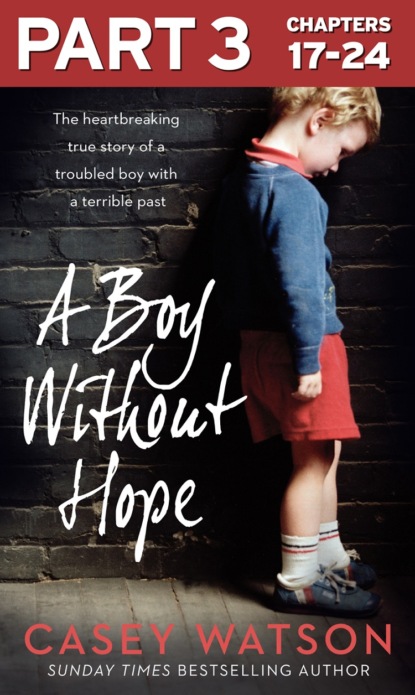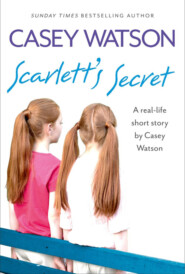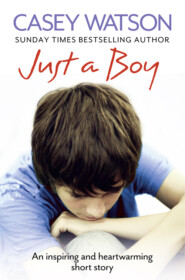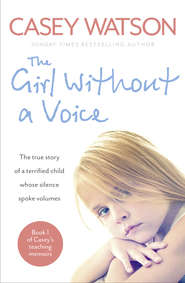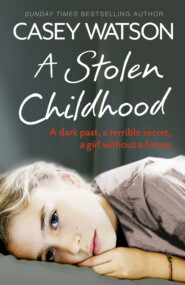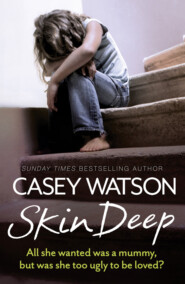По всем вопросам обращайтесь на: info@litportal.ru
(©) 2003-2025.
✖
A Boy Without Hope: Part 3 of 3
Настройки чтения
Размер шрифта
Высота строк
Поля
‘No. Just go on and do it. Look anywhere you like. I don’t have any more lighters or matches or anything. But you can look, and then when I’m allowed out of here you can look inside here as well.’
‘What on earth do you mean, “When you’re allowed out of there”? You can come out of there right away, love. No one is stopping you. And if this is you punishing yourself, then that’s silly. We just need to talk about it, that’s all. Come on. Come out, Miller. Please.’
No response.
So I decided I’d start searching anyway. Whatever he was up to – whatever reason he had for squirrelling himself away from me – perhaps once I started searching he’d change his mind. I got up off the bed to begin a systematic investigation.
Miller’s case was locked, as I’d expected, unable to give up its secrets unless I broke it. But, in the circumstances, with Miller behaving as he was, that felt too dramatic and potentially disruptive an act. I didn’t know what was going on here, but I was keen not to derail it. It might, after all, prove to be illuminating.
But that didn’t mean there wouldn’t be things to find elsewhere, and he’d told me to go ahead, hadn’t he? So I started looking in all the places kids who’d stayed with us had stashed things over the years: inside pillowcases and under them (the little toy train was still in place), inside board games, behind books, under mattresses, above cupboards, beneath the laundry bin and, on more than one occasion down the years, taped to the slats in the bed base. I was on all fours, in fact, peering up under his bed when he began speaking again.
‘And, as well, I counted one hundred and fifty times one hundred and fifty, and he didn’t come back. He didn’t come back. I saw three darks and three lights. And nobody came. And, as well, all the custard creams had gone after the first dark, and I had nothing to eat at all, and I was hungry. I could see him kissing her on the couch and they were drunk, and sometimes laughing, and I had to be quiet. I had to be mouse-quiet. Or else. And, as well, there was a mouse and it scared me and I wet my pants, and had to take them off and cover myself with a big coat …’
I stopped searching and sat back on my heels. Miller was so obviously relating something that had happened to him when he was little. And he knew I was still in there. He could see me through his spy hole. Which meant he wasn’t just talking – he was talking to me.
God, I thought. Car, I thought. Back of the car, I thought. It was a bit of leap – strike me down, professional psychologists – but it didn’t take a genius to reach the conclusion that Miller found it almost impossible to speak about his demons unless he didn’t have to make eye contact when he was doing it. He struggled to make eye contact in lots of situations. Lots of kids did when it came to personal matters. Which was why I’d often used car journeys to encourage children to open up – not least my own too. Had I become so fixated on Miller’s distracting, sometimes dangerous in-car behaviour (well documented in his files, of course) to lose sight of the fact that they could be a tool I could use to try to get to know him better?
I thought back to the garbled bath stuff he’d apparently disclosed to Tyler. Had he been trying to let me know about his early childhood then too? I went back to sitting on the bed, and thought about what to say.
‘Miller, sweetie, was this when you were little? Did you get closed in a cupboard? Was it when you lived with your parents?’
Silence.
‘It’s okay, love, I won’t speak, then. I’ll just sit here for a bit. It’s okay for you to talk by yourself.’
Another short silence, then off he went again. ‘And, as well, I got a big coat to pee on because it soaked it up. I had to, because one time he saw some leak out onto the floor in the hall, and he pulled me out, and he hit me and he spat on me. Mummy threw me a nappy in after two darks, but no more custard creams. And as well, and as well, all those babies in that earthquake. Those that are dead, they’re the lucky ones. No one likes babies. No one wants the babies. There’s too many in the world already, so they don’t need no more. Those dead ones are the happy ones. They’re the lucky ones.’
Silence fell again. I stayed sitting where I was for five minutes. Apart from the bit about the earthquake – which had recently been on all of the news channels after a terrible disaster in the Middle East – the rest seemed so obviously his own, raw, experience.
‘You there, love?’ I ventured finally.
More silence. Then off he went again, his voice soft and urgent. ‘When you’re a runt, you should die. Granny said so. You should be drowned. Because you’re no use to anyone if you’re the runt of the litter. And, as well, some animals kill and eat the runts of their litters. And if you’re a runt, you should be taken to a field and left to die there. Granny said so. And, as well, without your clothes on. So the birds can come down and pick your skin off when you’re dead. And then the worms can eat the rest. Till you’re bones. Just the bones.’
Granny said so. Granny said so …
A picture formed in my mind, to sit alongside that social worker’s long ago report. Damage breeds damage, I thought. This had clearly passed down a familial line.
I waited, my breath held, wanting more. But none came. Miller had obviously done talking for the time being.
The silence lengthened, and knowing he could see me as well as hear me, I stood up again and smoothed down my dress. ‘I’m going downstairs now, love, okay? But please don’t stay in there too long. You just come down when you want to, okay? And I’ll make you something to eat. And don’t worry, okay? We do have to have a chat about us all keeping safe in the house, but it’s nothing to worry about. And we don’t have to talk about this if you don’t want to,’
I left the room, and hovered silently on the landing for a little while, hoping that now I’d left him, I’d hear the wardrobe door click open. But I didn’t. Just more of the same silence. A silence more deafening than any amount of ranting he might have done.
Decided then, I went back downstairs. More emails to write, to Christine and Libby (I cc’ed the latter to her supervisor for good measure) while things were still fresh in my mind. Not that I kidded myself that anything would happen because of them – not immediately, anyway – but they would at least help paint a picture for any professionals who might work with Miller in the future; add to the small but growing pile of fragmented information we already had. And, hopefully, one day, all these bits of history could be put together, to create some sort of structured report that would form a timeline of his early life. In an ideal world this would have already happened. So much would have happened, to set him on a brighter path. But times were tough, money tight, children like Miller all too common. So it wasn’t an ideal world, was it?
And perhaps Miller, muted by trauma, and deformed mentally because of it, was only now about to give up his secrets.
Chapter 18 (#u3cef25ff-4f54-59dd-baca-219f29a478b7)
Apart from emerging for food three minutes after the time I’d gone in and told the hole in the door what time it would be served, Miller spent the rest of the day and evening in his room. And, anxious not to welly in and potentially scupper what might well mark a vital watershed, I refrained from demanding that he come down unless he wanted to, and didn’t ask him to expand on some of the chilling things he’d said.
And, having not received replies to either of my emails by mid-afternoon, I decided that I needed to be more proactive, leaving a brisk voicemail for Libby (who was out of the office) to demand that things were stepped up a gear, before the precious momentum (to quote Mr Hammond, my new favourite person) was lost. There was an urgent need, I told the answering machine, to get Miller some sort of regular counselling; to seize upon what had surely been his clearest cry for help yet. And in tandem with his endless talk of blood and gore and ‘lucky’ dead babies, it seemed to signify that there might be a very present danger of him wanting to do something to harm himself.
I disconnected in thoughtful mood. Or even us?
Because there was also the fact that my son had moved out, fearing the escalating tension. And, as far as I was concerned, Tyler’s departure impacted on everything. Because, as Libby must surely realise – as should Christine Bolton, for that matter – if it came to a straight choice between Tyler’s well-being and Miller’s, there was no choice. They could push all they liked (and they had) for Mike and I to commit to Miller for the long term, but without a commitment from them to support him as well, both practically and psychologically, the question wasn’t even worth asking; I had already made that commitment to Tyler, hadn’t I? And I sure as hell wasn’t about to renege on that.
And it seemed they got my point, because the next morning, bright and early, as per a text – a bloody text! – from Libby, the cavalry showed up. Not Christine – she was away dealing with an emergency elsewhere – but Libby, her supervising social worker, Jane, and a psychologist from CAMHS. They’d also brought another social worker, whose job it was to take Miller out for an hour while we thrashed out a strategy we were all comfortable with in the light of the new developments I’d outlined.
It started well, too. As in pleasingly not well. In that, despite all the training and tools he’d come equipped with, the young male social worker who’d come to take Miller off out somewhere was unable to even coax him from his bedroom.
I was keen to say ‘See?’ but I managed to restrain myself. It was sufficient that they’d noted this oh-so important point.
But the biggest point was a sticking point, as soon became obvious – when the psychologist, a stern-looking young man in a black funereal suit, voiced his professional opinion that there was no point in setting up one-to-one counselling with Miller till Miller was in a more stable situation. i.e. attending school regularly, by which he meant in September, and in a settled long-term placement. By which he meant with us.
So, like poker. The stakes raised. I’ll call you. I’ll see you. He would happily commit to helping, he said, as long as we were equally happy to commit to keeping Miller long term.
‘But we’re not prepared to do that,’ I argued. ‘Not yet. I mean, I know everybody wants us to give the reassurance that we can keep Miller in the longer term, but we just can’t at this stage. I’m sorry, but we can’t.’
‘But he does need that stability,’ the psychologist said. ‘From what I’ve seen, a big part of the problem seems to be that Miller never knows where he will be living from one week to the next.’ Tell me something I don’t know, I thought. ‘And until he feels comfortable,’ he went on, ‘and has a real sense of belonging, then we won’t get very far trying to work with him, will we? In fact it’s pointless if he’s to be moving on again so soon. Like trying to put a Band-Aid on a broken leg.’
He looked at me pointedly. And might have meant nothing by it. It might just have been a simple statement of fact, which I understood. And, to a great extent, agreed with. At least, in principle. But I still felt that pressure – that what he was really saying was that the ball was in my court, and the decision was mine. That it would be my fault if Miller didn’t get psychiatric help, so he could start getting better. I almost caved in at that point – God, I felt that as well, didn’t I? And hadn’t I already told Miller that the placement wouldn’t end? Hadn’t that been my exact point? That he couldn’t control that? Yet here he was, it seemed, doing exactly that, even from his bedroom. Even so, something, some instinct, held me back; kept me going.
‘As soon as I can tell you something different, I will,’ I said. ‘I’m afraid I can’t do any better than that at this point. The sad truth is that if Miller is determined to end a placement, he will do so, by one means or another.’ I glanced around the table. ‘We all already know that. And frustrated as I am to admit it, we may not have any say in the matter.’
‘I understand what you’re saying, Casey,’ said Jane, the supervising social worker. ‘And I realise that this leaves us at a bit of an impasse.’ She looked at the psychologist. ‘So, how about, until we all know how this will pan out, Casey has access to your out-of-hours team? Perhaps she could make use of the service in the event of an emergency, or if she just needs some advice on something? Would that be something you could offer?’
‘That seems reasonable,’ the psychologist said. ‘And, yes, I don’t see why not.’
‘Excellent!’ Libby said, as if he’d offered me the moon on a stick. My ‘thank you’ was rather more muted.
But I at least got the Band-Aid. However, even as I made a note of the numbers he then gave me, I knew it would be highly unlikely that I’d ever use them. How could I be supported by people who knew nothing of Miller? His background, his psychological problems, his ongoing issues? What help could they possibly give me in a crisis situation?
But there was clearly nothing else on offer. And not much left to say. Except by the social worker who’d spent the meeting holed up in Miller’s bedroom, and whose comment, when he’d been called down, when Jane asked him how things had gone, had only one word for her – ‘hmm’.
But it seemed Miller himself did have something to offer me. Because, as soon as I’d waved the team off and closed the front door, I turned around to see the boy himself halfway down the stairs. He’d clearly been waiting and watching, having heard them all leaving. He also had some items in his hands.
‘You alright, love?’ I asked him, wondering at his strange expression as he came down the remaining half dozen. And I felt for him. How many children, as part of their everyday normality, had to cope with the knowledge that strangers (and they were, in many cases) sat around discussing their futures in the way we’d just done? Yes, it was what it was, and it had to be done. But, on the front line – there to mop up, once the professionals had swept out again – I never felt comfortable with it.
In reply, he held one hand out, and I opened my palm. He placed two things in it. Both plastic disposable lighters. Then the other hand. And, once again, I held a hand out. And in that one he placed a knife.
It was a slender chef’s knife, and it was heavy. And doubtless sharp. And it wasn’t mine.
‘Where are these from, love?’ I asked him.
He seemed happy to answer. ‘I’ve had the lighters for yonks,’ he said. ‘I stole the knife off Jenny. I thought you might as well have them now, seeing as the police will prob’ly find them.’
‘The police? There are no police coming.’





